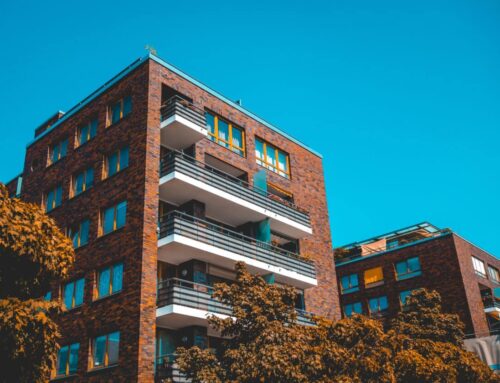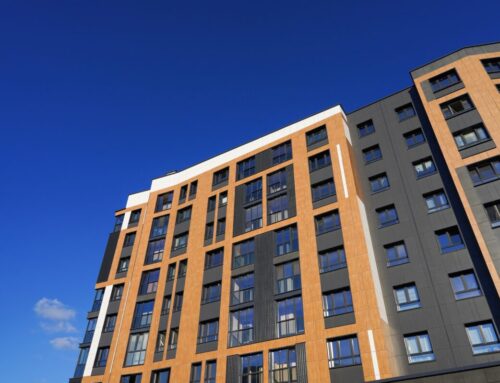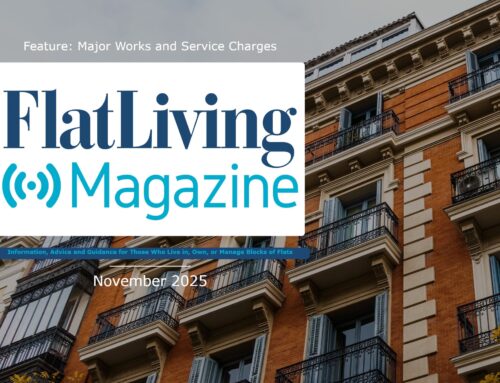Belinda Bagnall from Residentsline discusses how property managers can support struggling residents and why they should be considering the mental health of their residents in everything they do.
 From the 13th to the 19th of May 2024, the UK will be observing Mental Health Awareness Week. It is an important time for raising awareness of this ever-present issue and one for the property management industry to pay particular attention to.
From the 13th to the 19th of May 2024, the UK will be observing Mental Health Awareness Week. It is an important time for raising awareness of this ever-present issue and one for the property management industry to pay particular attention to.
Leasehold dwellings make up roughly 20% of the UK’s housing stock and the millions of people that live in leasehold properties represent every class, race, religion, age and ability. With huge numbers experiencing common mental health issues such as depression and anxiety as well as a rise in the number of people being diagnosed with more severe issues, a sizeable percentage of leaseholders will no doubt be experiencing problems with their mental health.
This huge swathe of our community has also experienced common challenges over the past few years. From cladding and fire safety issues to Covid, to the cost-of-living crisis…many will still be reeling. Leaseholders are also more likely to reside in city settings and high-rise blocks which bring their own sets of challenges.
Why is Mental Health a Concern for Property Managers?
Looking out for the mental health of those we interact with is a job for all of us. For property managers this certainly extends to the leaseholders whose home they maintain and investments they protect.
For some leaseholders (especially elderly, isolated or disabled residents), their property manager may be one of few people they are in contact with regularly. It is important that they feel they can speak freely and trust that they will be heard and sign-posted to the right support network.
For these secluded residents and all others, the effective maintenance and running of a block can have a huge effect on the enjoyment and peace they experience in day-to-day life.
Aggressive service charge collection procedures, delayed maintenance plans and disorganised communication can all add stress to an already stressful existence. If property managers can keep the (sometimes fragile) mental health of their residents in mind, they can have a hugely positive effect. They can also act as a first responder for someone in crisis.
Preventative Action
Preventing issues is always better than remedying them. There is quite a bit that property managers can do to boost the mental health of their residents and stay ahead of the game for anyone struggling. Considerations include:
- Effective maintenance plans
Reducing stress and anxiety by maintaining a safe, secure, clean and comfortable environment.
- Clear and accessible communication
All communications around maintenance and financials should be clear and concise. Different formats should be available to suit the needs of all residents. Offering to chat things through once written communications have gone out can also reduce any anxiety or misunderstandings. This could be one-to-one, or you could arrange a resident meeting.
- Creating a welcoming sense of community
Make sure your residents are aware of any community activities or online social groups. Creating relationships between neighbours can play a huge part in enriching lives and growing the connections needed to avoid isolation.
- Getting to know residents on a personal level
Take the time to get to know your residents and check in with those you haven’t heard from in a while. If you know someone is lonely, introduce them to others in the building and check on them regularly. If you know a few residents in similar positions e.g. single parents or work from home freelancers, give them the opportunity to connect.
- Maintaining flexibility for those in need
Knowing your residents on a personal level can help when making decisions around payment flexibility or allowing fair allowances and accommodations for those in need.
- Training staff in mental health awareness and first aid
Consider enrolling for mental health awareness and first-aider training for you and your team. You may well become a first responder for someone in crisis one day- be ready.
- Open signposting of relevant resources in the area
Utilise community notice boards and online social groups for signposting residents to local resources. Mind centres, crisis centres, counsellors and holistic therapists can be helpful to name a few.
What to do if a Resident is in Crisis
It may be clear to you that someone is in crisis. They may simply tell you, or you may have a hunch based on their behaviour, appearance or the state of their unit.
Regardless of how the issue comes to light, your first step is to listen. Listen without judgement- simply let them talk it out if that’s what they need to do.
You can then gently signpost them towards the services they may find useful. Make sure they know they can come to you if they need someone to speak to or any further assistance. Check in with them regularly to ensure they have support in place.
If it is clear that there is an issue but your resident doesn’t want (or cannot) talk to you, contact them by private means with signposting information and a caring, supportive tone. Check in regularly to follow up on their progress.
If you are aware of more than one resident experiencing issues, you could consider creating a safe space for them to come together. This could be face-to-face in a private, communal area or online. They may find comfort in knowing their neighbours are experiencing similar issues and find it easier to talk to someone in the same position.
Residentsline has been providing insurance for flats and apartments for over 25 years. We enjoy providing support and assistance to our customers in all areas of leasehold. Call us today for a quote at 0800 281 235.




Leave A Comment